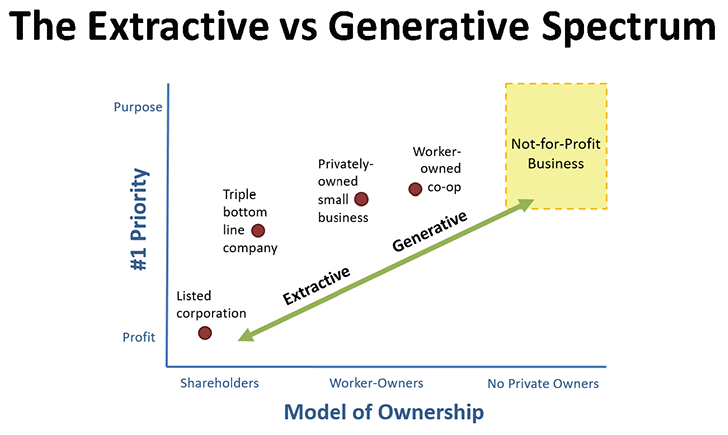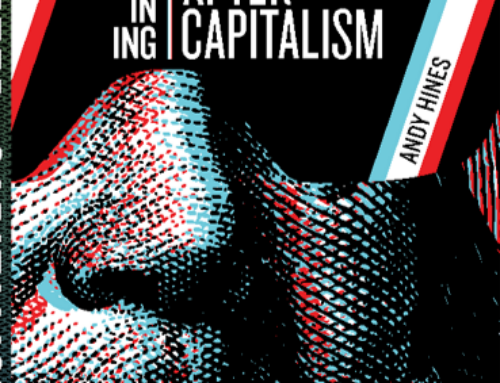In the 1921 Czech play called “R.U.R.”, a scientist decries that his robots are used as war machines. The scientist envisioned robots as emancipating humans from the hardship of labor. His colleague replies that their company’s shareholders gave them no choice because the “[Shareholders] dreamed of the dividends. And on those dividends humanity will perish.”

Is this 400 year old bond to blame for inequality and environmental destruction? The Dutch East Indies Company was the first multinational company to issue bonds and shares to the public. (Source: Wikipedia)
Ninety years after R.U.R’s warning about shareholder greed, the Post Growth Institute has sought to move away from an economy drive by the “dreams of shareholders.” For the institute, the current economy is not sustainable, in terms of dwindling natural resources and increasing social inequality.
Not-for-Profit Companies
The institute’s post-growth economy concept borrows on many discussed economic ideas, such as the circular economy and the commons economy, as means to shift humanity to live within its means. Its more concept is that of the non-profit corporation, which differs from cooperatives, benefit corporations, and traditional non-profit organizations. The Post Growth Institute defines the non-for-profit companies as:
“100% of any profits these businesses make must be reinvested into the business or community. So, not-for-profit really means not-for-private-profit; no more incentivising selfish behaviour.”
The institute argues that not-for-profit companies are the ideal hybrid between innovative, but private profit-driven, businesses and socially-focused, but charity dependent, non-profit foundations.

The Not-For-Profit concept differs from co-ops and triple bottom lines organizations. Source: Slideshare.net
The institute believes that such a not-for-profit structure can transform corporations into vehicles for wealth distribution. Profits, instead of going to shareholders or the top management, would circulated back into the economy. The lack of shareholders and private owners distinguishes the Post-Growth Institute’s concept of not-for-profit companies from social enterprises, B-corps, and C3 companies.
Without private profits, the institute believes that corporations would not be as incentivized for profit maximization.The assumption is that without profit maximization the push for increased material consumption would decrease, thus improving quality of life and improve the environment.
Shifting Social Values
Jennifer Hinton and Donnie Maclurcan, co-founders of the Post-Growth Institute, identified several trends that they say make non-profit businesses timely and critical: the decline of equitable growth due to inequality created by the current growth-focused economy, a generational shift towards purpose-driven work, and increasing social sensitivity to social and environmental issues.
Hinton and Maclurcan argue that a shift from for-profit to not-for-profit businesses will generate a profound shift in humanity’s well-being, as the culture of “ubiquitous marketing and the culture of consumerism” will lose its luster when companies do not need to push for profit maximization to keep shareholders happy.
Rethinking Corporate Charters
The Post-Growth Institute’s view of rethinking the corporate charter, that is, the purpose and structure of a company is not a novel concept. In Indonesia, companies in the natural resources industry are required to perform CSR. While in Germany, companies over 2000 employees are required to allocate labor representatives to over half of its board of directors.
Closer to Post Growth Institute’s concept, countries from Thailand to the United Kingdom have established laws allow for social enterprise-focused businesses, ones that are not focused on either non-profit nor shareholder-return maximization. The corporation is, of course, an arbitrary legal concept and can be changed. The not-for-profit company concept could be the next step.
What other key socio-economic concepts should we re-examine to shift from a unsustainable, growth-based economy to one of abundance and sustainability? — Daniel Riveong




